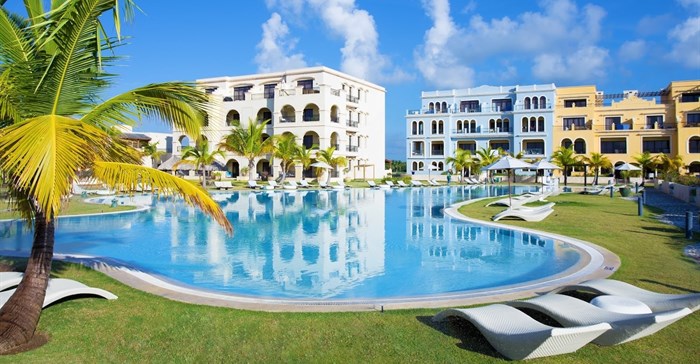A total of 365 hotel chain development pipelines were reported in Africa in 2016, with 64,231 rooms. This is according to
a report by the W-Hospitality Group, providing advisory services in the hotel, tourism, leisure, and real estate industries to investors.
This is a record 29.2% increase from the 2015 numbers of 270 hotels and 49,715 rooms in the pipeline activity. Furthermore, a JLL hotel research (Jones Lang LaSalle) predicts an investment of $1.7 billion in 2017, in hotels in Sub-Saharan Africa with $1.9 billion more in 2018. This is expected to increase the number of hotel rooms in the region from the current approximate of 257,000.

Image by Kaspars Grinvalds
Africa's continuous economic growth is constantly attracting both domestic and international investors due to extensive business opportunities. The hospitality industry is a major beneficiary of these investments because of its lucrative nature, a factor that explains the increasing development of hotels.
A rising middle class especially concentrated in urban areas is also a contributor to the expansion of hotels in the continent. It is estimated that by 2030, Africa’s top 18 cities are likely to have a combined spending power of $1.3 trillion. This will prompt more Africans to travel, internationally and domestically, as a result of growing disposable income, thus the need for more accommodation facilities.
However, even with the continuous growth in the hotel industry, the tourist demand in Africa surpasses the provision of accommodation. Data by UNWTO shows that Africa received 58 million international arrivals in 2016, with the number expected to grow further in coming years. The growth is not only influenced by the rush for investment, provision of affordable travel by travel agencies, and flexible visa requirements but also the fact that major airlines have expanded their direct flights to most African countries.
Moves by travel stakeholders such as Jumia Travel to capitalise on this demand and offer diverse travel services including hotel booking, packages, and the just launched flights, is an assurance that the influx of tourists to Africa is only bound to go higher. Therefore, hospitality providers, especially hotels, have a huge gap to fill in meeting the consumers at their point of need and demand. The biggest challenge will perhaps be striking a balance between quantity and quality, as the new generation of travellers shifts focus from generic products to more customised and personalised experience.











































